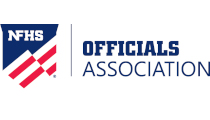Pre-match Safety Responsibilities for Volleyball Officials
By Dianna Moore on August 10, 2015 officials PrintTaking care of pre-match responsibilities is an important stepping-stone in preparing officials to officiate the match. Once the officials arrive at the site of the match there are important procedures and guidelines that must be followed to ensure the safety of the participants, officials, and spectators.
Throughout my 27 years of officiating I have entered many sites that have equipment stored in what would be playable areas for the participants. Wrestling mats, rebounding machines, physical education equipment, and other objects are often encountered when officials arrive at the site. Many times officials are told that there is no other place to store this equipment. It is the responsibility of the officials to ask the administration of the school to take care of this problem and explain why it must be removed in a professional manner. Different states have procedures for officials to address this problem such as special reports to their state association, local official's boards meeting with athletic directors and principals, written correspondence between officials, coaches, and administrators, to name a few.
The most important aspect in taking care of safety issues is for local officiating boards to discuss safety in their meetings, carefully discussing potential and specific safety dynamics at each school where they will be officiating. Once issues have been identified pro-active steps must be taken to eliminate all safety issues at each site. This is extremely beneficial for new officials and a reminder for veteran officials.
A good way to identify safety problems is for the local boards to ensure that there is a visit to each site where they will be officiating before the season begins. This is helpful in many ways. It gives officials and coaches the opportunity to meet each other and to discuss safety problem areas at the site. Often coaches can take care of the issues themselves or ask their administrators to assist in solving the problem areas before the season begins. Officials can also take this opportunity to address the players and explain the player uniform and equipment rules to them along with other rules of the sport. These preseason meetings are beneficial for officials and are a great educational opportunity for the athletes and coaches.
One area of safety that officials sometimes overlook is examining the net cables for fraying or weakening areas when checking them for coverings. Although this is not specifically addressed in the rules it is a good idea to complete this inspection at each match you officiate at. Coaches sometimes have the players put up the nets for practice or matches and do not realize there may be problems with the cables or attachments.
The first referee's stand must be properly padded but what are often overlooked with the new equipment padding are the wheels that stick out toward the court and the back wheels. These wheels are not covered and are in an area that a player can come into contact with and be injured. Padding and covering these wheels can alleviate the possibility of injury.
If safety issues cannot be solved before the match is to begin it is extremely important for the officials to address them in the pre-match conference and establish definite non-playable areas and ground rules. Officials must enforce safety rules and guidelines at all sites. It is not acceptable to ignore a safety issue, continue play, and ask that it be resolved before the next match.
Safety is addressed in the NFHS Rules Book, Case Book, and also in the NFHS Officials Code of Ethics.
It is in everyone's best interest to identify all safety problems when inspecting the court, net supports, areas adjacent to the court, and the referee's stand to ensure these problems are taken care of prior to the match. Correct any hazardous situations as they occur. Failing to do so jeopardizes the safety of participants. If a floor becomes wet, dry it immediately with towels or mops.
Safety also applies to player equipment such as aim, knee, elbow, and ankle braces, hair devices, jewelry, body piercing and addressing glitter and body paint.
Safety issues can also arise when officials do not address sportsmanship issues immediately. This applies not only to players and coaches but also to the crowd. When problems occur with a coach, player, scorekeeper, timer or bench personnel the officials are to address the issue in an impartial controlled manner. If the problem occurs in the spectator area the officials are to ask the home administration to take care of the problem. If the home administration is not available the official will ask the home coach to resolve the problem and play will be suspended until it is resolved.
Officials must also keep in mind and follow correct procedures when dealing with blood issues on the court and on player uniforms. There is Communicable Disease and Skin Infection Procedures that official's should educate themselves with in the NFHS Rule Book.
Heat can also be a serious health issue. Officials can at any time during a set stop play and allow players to hydrate themselves when heat is an issue at the facility. Be observant and mindful of the temperature and players.
To be pro-active for player safety the officials should also make themselves aware of where the trainer is at the site to ensure immediate help is available or what procedures the coach has for injuries that occur during the match. Officials should not treat an injury or assist in removing an injured player from the court. Allow the trainer or school personnel to take care of the situation.
Accidents and injuries can occur at any time at any site and as officials, we are charged with ensuring that each site is as safe as possible and establishing ground rules for problem areas. The best practice is for officials to educate themselves in recognizing safety issues and deal with them in a firm respectful manner. Officials have a professional obligation to follow correct safety rules and guidelines throughout the match and practice good risk management at every match.
Although there are many safety issues that have not been addressed in this article the ones that I have talked about have occurred more frequently over the years. Whether it is aging equipment and facilities or officials becoming complacent due to familiarity with a site having officiated numerous times at that school, safety must remain a high priority and monitored at all times.
Dianna Moore
Dianna Moore officiated high school, middle school and junior high volleyball for 27 years and was the West Virginia Volleyball Rules Clinician having served in that capacity for the 16 years. She also served on the WVSSAC Officials Advisory Board and was a retired teacher and administrator having taught for 35 years.
Most Recent Articles
- nfhs news NFHS Learning Center Delivers 25 Millionth Course
- Track & Field/Cross Country article Effective Communication with Athletes and Coaches
- nfhs news Player Equipment Changes Highlight 2025 High School Football Rules Revisions
- Player Equipment Changes Highlight 2025 High School Football Rules Revisions
- nfhs news Judgment Call on Second Contact Eliminated in High School Volleyball






